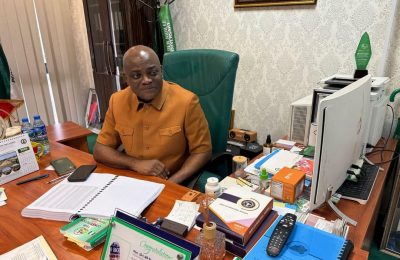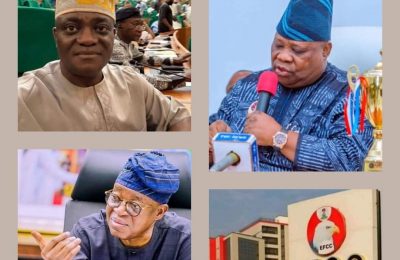THE leadership of the two foremost labour centres, the Nigeria Labour Congress (NLC) and the Trade Union Congress of Nigeria (TUC), has outlined workers’ expectations for the year 2025, urging the federal, state, and local governments to address pressing socio-economic issues.
In their separate messages, NLC President, Comrade Joe Ajaero, and TUC President, Comrade Festus Osifo, harped on the need for immediate policy shifts, with the reduction of the exchange rate, industrial peace, respect for the rule of law, with adherence to the 2024 National Minimum Wage Act taking centre stage. They also highlighted the importance of policies that deliver tangible benefits to citizens, as well as the principles of transparency, honesty, and inclusivity in governance.
Comrade Ajaero stressed the critical role of industrial harmony, urging the Federal Government to engage constructively with labour unions.
“As we move into 2025, we urge the Federal Government to prioritise industrial peace by taking social dialogue seriously, pursuing pro-human-progress policies, and respecting agreements with trade unions. The increasing use of violence in engagements with workers and unions must cease, as it is a recipe for industrial disharmony,” he said.
He reaffirmed the commitment of trade unions to national progress while emphasising their responsibility to workers and citizens.
“Trade unions, which we are, as a pan-people organisation, remain committed partners in progress, striving for the development of Nigeria while protecting the rights of workers and citizens at large. We have a very large stake in our nation and are compelled to seek optimal outcomes from government policies. While we urge governments to govern well, they must understand that we are responsible to our members, and this we cannot shirk,” Ajaero stated.
The NLC leader also called for full compliance with the 2024 National Minimum Wage Act and proposed a wage review to address economic realities.
“Governments at all levels must comply with the provisions of the 2024 National Minimum Wage Act from the beginning of the year. Furthermore, given the economic realities imposed by recent government policies, we shall engage the government for a wage review to safeguard workers’ welfare. Our nation will become more productive when workers’ incomes meet their basic needs, enabling them to commit more to their work. We look forward to fruitful engagements with our social partners on this matter in 2025,” he added.
Ajaero further urged governments to ensure that governance translates into real benefits for citizens.
“The welfare of citizens remains the primary justification for the existence of any government. Access to food and nutrition, better healthcare, quality housing, education, transportation, and greater security of lives and properties, including the right to participate in decisions on how they are ruled, are key expectations. Policies must reflect transparency, honesty, and inclusivity, devoid of chicanery, nepotism, and strong-arm tactics,” he noted.
Osifo, on the other hand, called for a redoubling of efforts to tackle economic hardship, emphasising the need for practical policies to ease the burden on Nigerians.
“As 2025 begins, we expect governments at all levels to redouble their efforts at addressing current economic hardships for the safety of everyone. Government must consider how its policies affect the micro-economy of Nigerians because that is what affects you and me,” Osifo stated.
He stressed the importance of food security and urged governments to make significant investments in agriculture.
“It is the responsibility of the government to ensure that the welfare of its citizens is prioritized. Today, hunger is excruciating, and we strongly believe that with strong collaboration between the federal, state, and local governments, policies can be created to ensure that farmers return to their fields. More importantly, the government must ensure security across Nigeria,” Osifo said.
He also pointed out the adverse impact of the current exchange rate on the economy, criticising the 2025 budget projection of N1,500 to a dollar.
“When we saw in the 2025 budget that the government moved the exchange rate officially from what it was in the last budget to N1,500, we were not happy. With an exchange rate of N1,500, the prices of goods and services will not come down. If the exchange rate were reduced to N1,000 or N1,200, and the Central Bank of Nigeria (CBN) implemented policies to encourage a downward trend, high costs would reduce, giving hope for a better future,” Osifo concluded.
Both leaders reiterated their commitment to engaging the government in 2025 to ensure that policies translate into real, positive impacts on the lives of Nigerians.
ALSO READ TOP STORIES FROM NIGERIAN TRIBUNE







